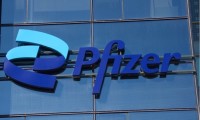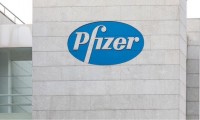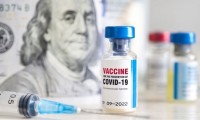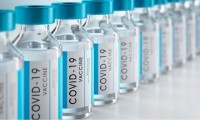-
Pfizer shelves one oral pill, pivots to another in weight loss drug race
- Source: drugdu
- 106
- June 28, 2023
-
Samsung Biologics, Pfizer partner for biosimilars portfolio manufacturing
- Source: drugdu
- 114
- June 12, 2023
-
Pfizer taps Samsung Biologics in long-term biosimilar production deal worth $411M
- Source: drugdu
- 117
- June 11, 2023
-
’ Seagen CEO talks about his next stop, Pfizer deal and the ADC landscape
- Source: drugdu
- 185
- June 10, 2023
-
Moderna, Pfizer Hit with New COVID Vaccine Patent Lawsuits
- Source: drugdu
- 103
- June 9, 2023
-
Pfizer’s antibiotic combination shows promise in treating multi-drug resistant infections
- Source: drugdu
- 120
- June 6, 2023
-
Look out, GSK. Pfizer has its adult RSV vaccine approval and is raring to launch
- Source: drugdu
- 125
- June 5, 2023
-
Alnylam sticks with aggressive litigation strategy against Pfizer and Moderna, filing yet another patent lawsuit
- Source: drugdu
- 120
- June 1, 2023
-
While Pfizer, BioNTech agree to cut COVID vaccine supply to Europe, Moderna sets up shop in China
- Source: drugdu
- 140
- May 31, 2023
-
European Commission to receive fewer Pfizer-BioNTech vaccine doses under amended contract
- Source: drugdu
- 119
- May 30, 2023
your submission has already been received.
OK
Subscribe
Please enter a valid Email address!
Submit
The most relevant industry news & insight will be sent to you every two weeks.













